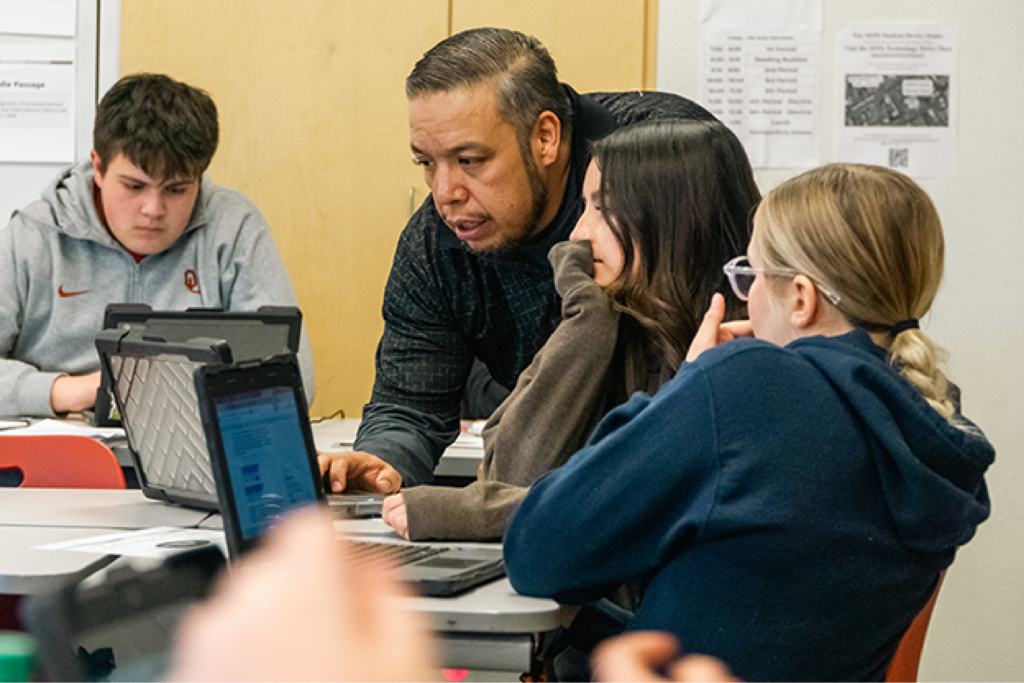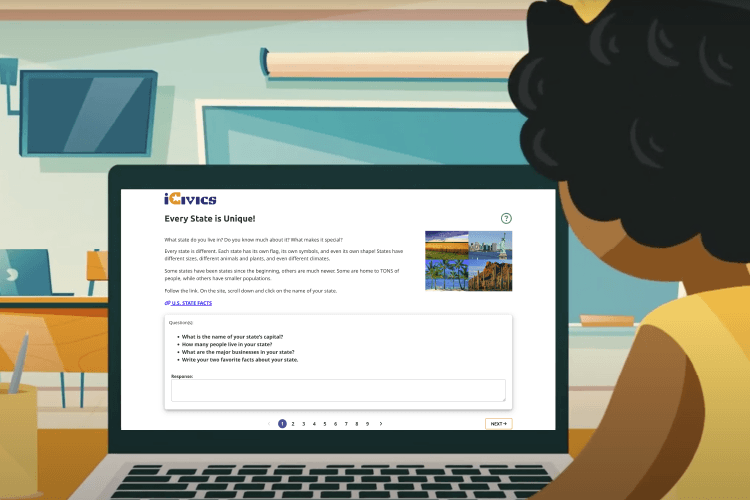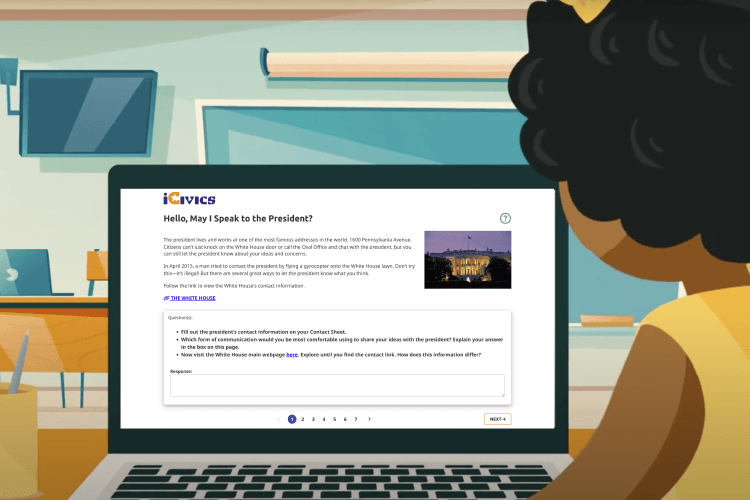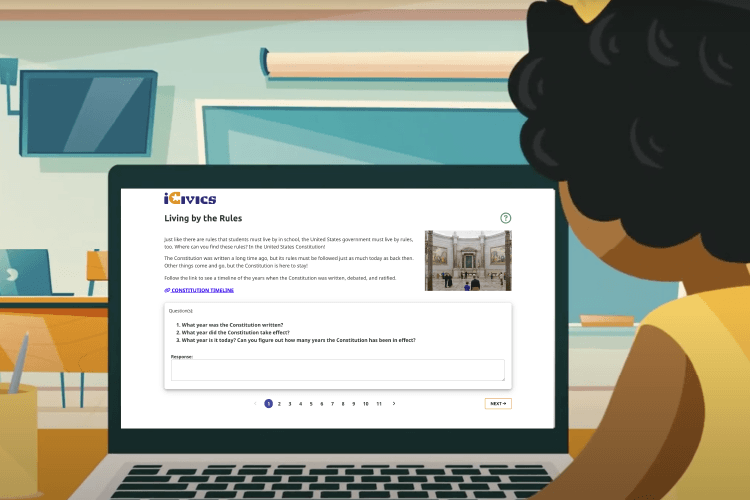How to Use:
Help students connect civic concepts to the real world and learn how to navigate online information with WebQuests. These carefully curated activities break down a topic, present research opportunities, and ask questions that help students make connections and inferences.

Key features
WebQuests guide students to pre-selected online resources that provide an engaging understanding of civics.
Plan with time in mind
Requiring 45 minutes or less to complete, WebQuests are easily incorporated into a single class period.
Support reading comprehension
Engage students with authentic and relevant online resources that support reading comprehension in a self-paced and structured environment.
Assign and track
Assign WebQuests and track student progress and performance with the iCivics LMS.
Simulate web-based research
Encourage deeper thinking and engage students in exploring civic-related topics online with pre-selected links.
Teaching Tips

Adapt based on your access to technology
WebQuests can be completed in a variety of settings, from 1-to-1 to small groups—where discussion adds to the learning experience—or as a whole class with the quest and links projected for the class to see. WebQuests also make great homework assignments to introduce or practice concepts covered in class.
Explore real media and sources


Implement with ease
WebQuests are ready-to-use teaching resources that do not require students to have any prior knowledge of content. Through the quest, students will learn everything needed to succeed and accomplish learning objectives.
Ways to use WebQuests in the classroom
Introduce
Teach about topics students have little to no prior knowledge of and create curious minds ready for the learning to come.
Supplement
Round out an engaging sequence of learning activities designed to foster an understanding of key content.
Independent student assignments
Make learning objectives stick and leverage classroom learning by adding internet experience to your existing materials and teaching methods.
Most popular WebQuests

- State and Local Governments
Every state is different… and every state is the same! How can that be? Follow this WebQuest to find out about your state, its government, and its relationship to the U.S. government!
- One class period

- The Legislative Branch
Do you know who represents you in the federal, state and local government? Do you know how to get in touch with them? Follow this WebQuest to find answers to these questions and more!
- One class period

- The Constitution
This WebQuest takes you on a fast tour of our Constitution. You’ll find out why it was written, how it’s structured, what it does, and even how it can be changed.
- One class period
What makes our WebQuests unique?
Promote an effective use of real-life web content in a curated and scaffolded structure.
Offer students familiarity with verified and trusted online sources and teach students to recognize and use trusted web pages.
Help students develop critical thinking skills, including synthesizing information from multiple sources.
Why WebQuests work for educators
WebQuests are easily implemented resources that fit into any curriculum, and they allow educators to bypass the time-consuming challenge of curating websites. Links and sources are vetted for student use and checked regularly by veteran educators.
